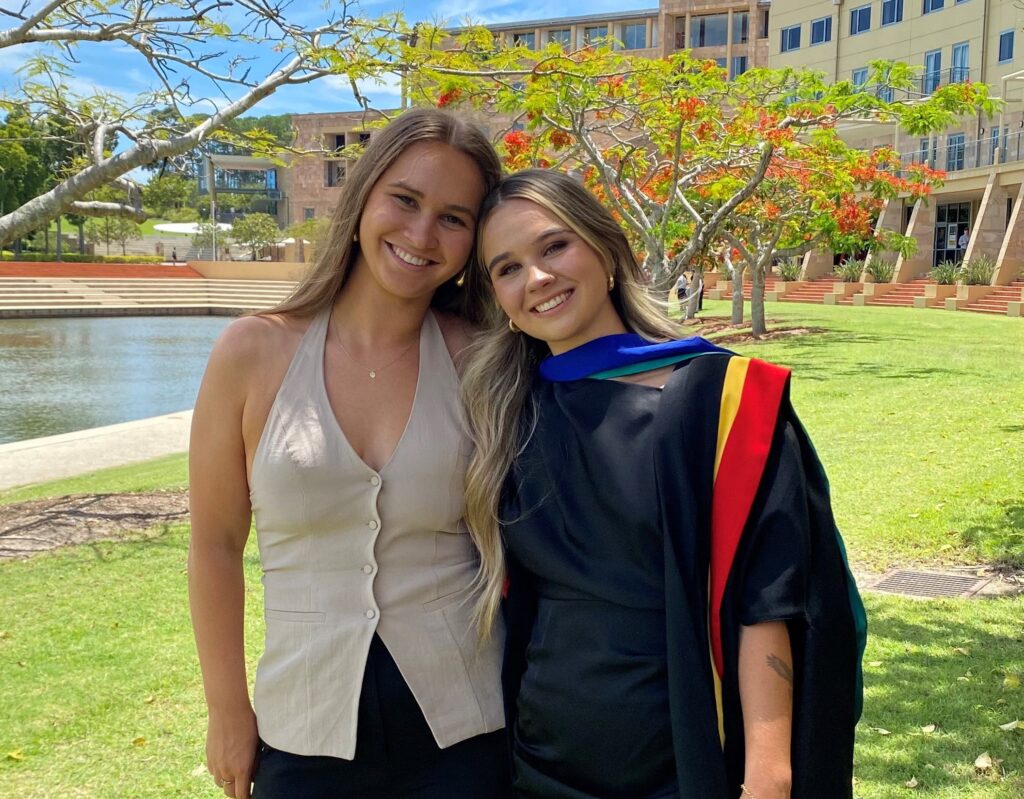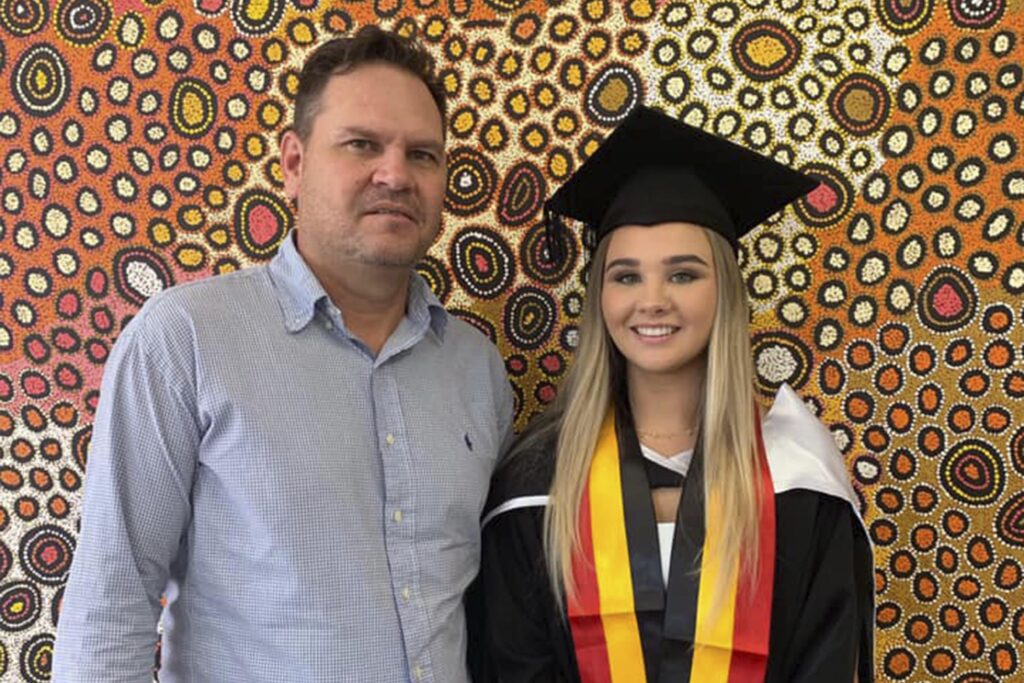When Marnie Jones, a proud Gamilaraay, Barkindji woman, applied for a Yalari scholarship in 2010, she could never have imagined how profoundly it would shape her journey.
Encouraged by her parents and inspired by members of her hometown community in Lightning Ridge, rural New South Wales, who had excelled at boarding school, Marnie saw the scholarship as a gateway to possibilities she couldn’t find in her hometown.
“Mum and Dad told me about the incredible opportunities other kids were experiencing,” says Marnie. “I loved school and sport, and I knew staying home wouldn’t provide the same opportunities.”

Yalari alumni Marnie Jones and her sister Zarleigh at Marnie’s University graduation.
More than a decade later, Marnie reflects on just how pivotal Yalari has been in her life. “Yalari has shaped my life in every way imaginable—I owe so much to them,” she shares. Beyond supporting her education, the scholarship gave Marnie the courage to leave home and pursue university, a life-changing step that opened countless doors. It also allowed her to lead by example for her younger siblings, proving that embracing challenges could lead to extraordinary opportunities.
The influence of Yalari extended far beyond the scholarship itself. “I’ve met so many incredible people and learnt about the diversity of First Nations culture across Australia through the special friendships I’ve formed,” Marnie adds. These connections, along with the unwavering support of Yalari Founders Llew Mullins and Waverley Stanley AM, helped her navigate the challenges of boarding school, particularly homesickness. “I’ll never forget my first day after my family left—I used up all my phone credit and money on the payphone, begging them to pick me up,” Marnie laughs. “Having my little sister join me at school and the visits from the Yalari team provided me with a sense of home.”


A Calling in Healthcare
By Year 10, Marnie had discovered her passion: Occupational Therapy. A careers expo introduced her to the field, and its holistic, person-centred approach resonated deeply with her. “Whether it’s helping someone brush their teeth independently or cope with life’s challenges, I loved the idea of empowering people in creative, practical ways,” she says. Marnie was also motivated by the lack of allied health professionals in her hometown. Determined to address this gap, she set her sights on a career in health, aspiring to one day return home and give back.
Today, Marnie works as a Paediatric Occupational Therapist at the Institute for Urban Indigenous Health, where she supports First Nations children in achieving their goals. She’s also halfway through a Doctoral Degree in Occupational Therapy, with ambitions to transition into academia. “I want to influence how future healthcare professionals are educated by ensuring they learn about culturally safe and responsive practices that embrace Indigenous ways of knowing, being, and doing,” Marnie explains.
Looking Forward
Marnie’s ultimate dream is to open a nature therapy clinic where children can connect with culture while receiving therapy. This vision ties closely to her doctoral research, which focuses on developing culturally responsive nature therapy resources for First Nations children. Collaborating with Elders and health professionals, Marnie has designed therapy activities grounded in traditional knowledge, such as caring for Country.
“My hope is that these programs will help children thrive while also passing cultural knowledge to future generations,” Marnie shares. “By creating spaces where culture and healthcare intersect, I hope to leave a lasting impact that honours the strength and wisdom of our ancestors.”


